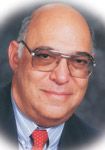The everything specialist: You can't do it all
Before graduation we should have been taught how to use these surrogates profitably.
Today, according to recent reports, about one in nine veterinarians is a specialist. The 2006 AVMA membership directory lists 125 columns of those with specialty boards or diplomates, totaling some 8,216 active specialists among the 70,000 listings.

I'm not quite sure how to take the number of specialists. Does that mean that eight out of nine veterinarians specialize in nothing? How is it that nothing can be so exhausting at the end of the day? Why does it cost almost as much overhead as revenues to do nothing as a specialty?
I believe it is time to make nothing a specialty of its own. We could have an American Academy of "Nothing Specialists." The hitch is that specializing in nothing means we are really coming full circle to the study of everything, which you might agree is nothing special.
Those of us who have been doing everything for so long, may have lost sight of the goal.
That goal was to have a rewarding career caring for the animal populations entrusted to us by our state licensing boards. This goal encompassed a reasonable workweek with reasonable compensation and benefits. After some 30 years, we could settle back and try to enjoy the fruits of our labor.
The enjoyment of our retirement would, however, be modified by the physical toll extracted by lifting Mastiffs or pulling calves. Our hips and knees would reflect the long hours at the operating table; and for many, the lack of head plumage would be the result of tearing out our hair while wrestling with staff incompatibilities.
Specializing in everything is anything but cost effective. Smaller practices (one to two veterinarians) simply can no longer afford to keep updating equipment that we had no business owning in the first place. Six-day staffing and expensive equipment costs are becoming synonymous with low profitability.
The time has come where solo and two-doctor practices must refer to these specialists for higher-capacity procedures and diagnostics. Commercial labs provide high-quality control on more sophisticated diagnostic equipment for less cost.
Less cost means simply more profit, and that is what is lacking in smaller practices.
The progress made in equipping the human medial hospital is phenomenal. Every hospital today wants its own MRI, magnetic resonance chambers, CT scanners, etc., but our government has put its collective foot down and said "If you want subsidies, you have to provide a certificate of need." And that actually makes sense.
Many celebrities from stage and screen have learned that delegation can solve their physical and mental problems. They use stunt doubles and managers so that they can fully employ their talents where best applied. Before graduation, we should have been taught how to use these surrogates profitably.
One of these is your accountant. His/her business acumen is so far above that of the average practitioner that you would need an air sickness bag to dwell at that altitude. Use them for more than IRS demands. No mature practice (more than 5 years old) should ever net less than 35 percent.
There are only two ways to achieve greater than 35 percent net (before veterinary salaries). One way is to drag more beasts through your front door while keeping your expenses the same. The other way is to reduce your operating costs.
Staffing should cost no more than 20 percent of your gross, and 12 percent to 15 percent is certainly attainable in many practices.
I know that most of my readers are everything specialists, but that is our profession's downfall. If you cannot cure something by the third visit, you usually refer it to a specialist. Use logic. If you cannot get your profit up to above 35 percent, call your accountant, a management specialist or 911. You are in trouble. While you will likely never lose your license because of financial mismanagement, you will likely lose anything close to a comfortable retirement.
Dr. Snyder, a well-known consultant, publishes Veterinary Productivity, a newsletter for practice productivity. He can be reached at P.O. Box 189, Hebron, KY 41048-0189; (800) 292-7995; vethelp@insightbb.com; Fax: (859) 534-5265.

Gerald Snyder vmd